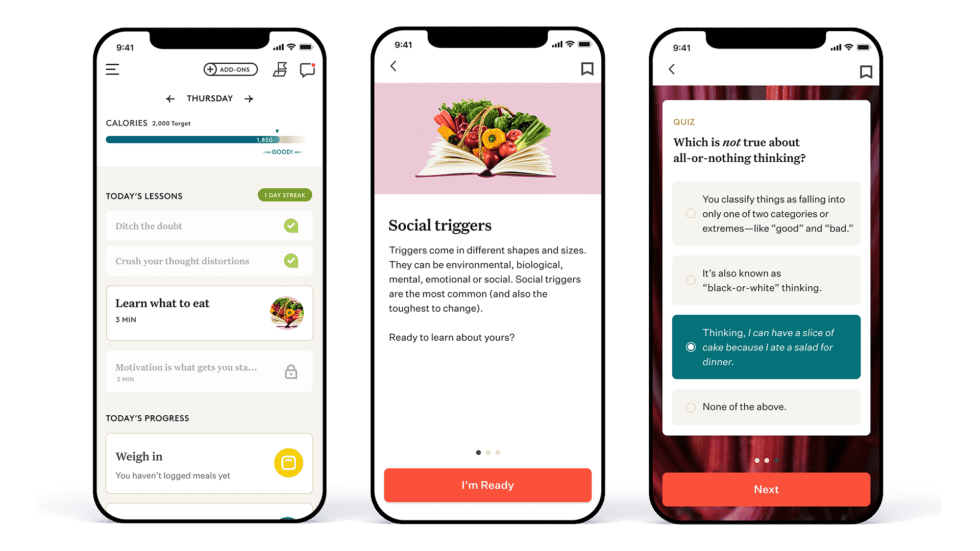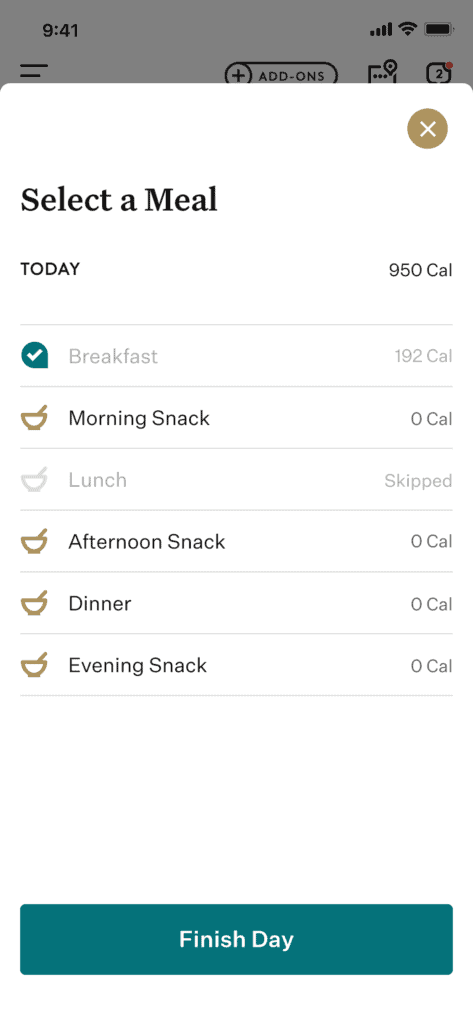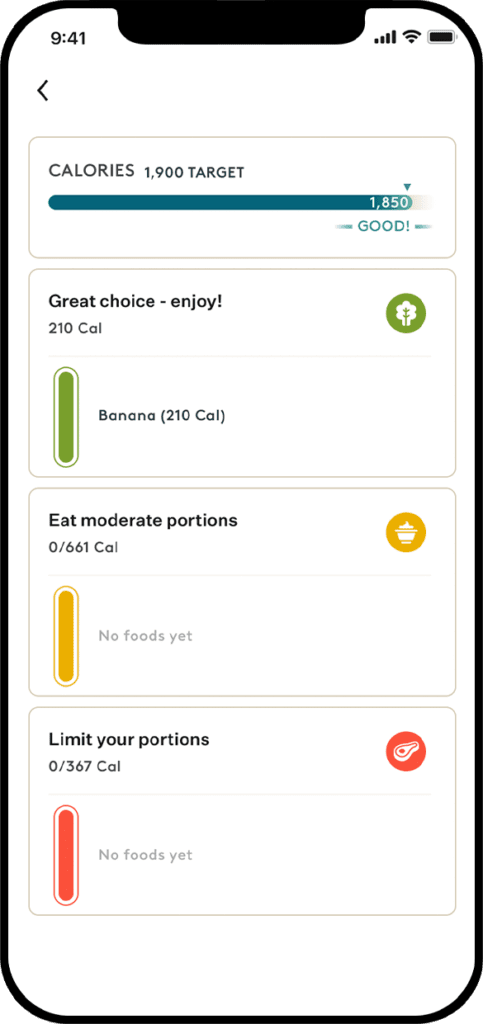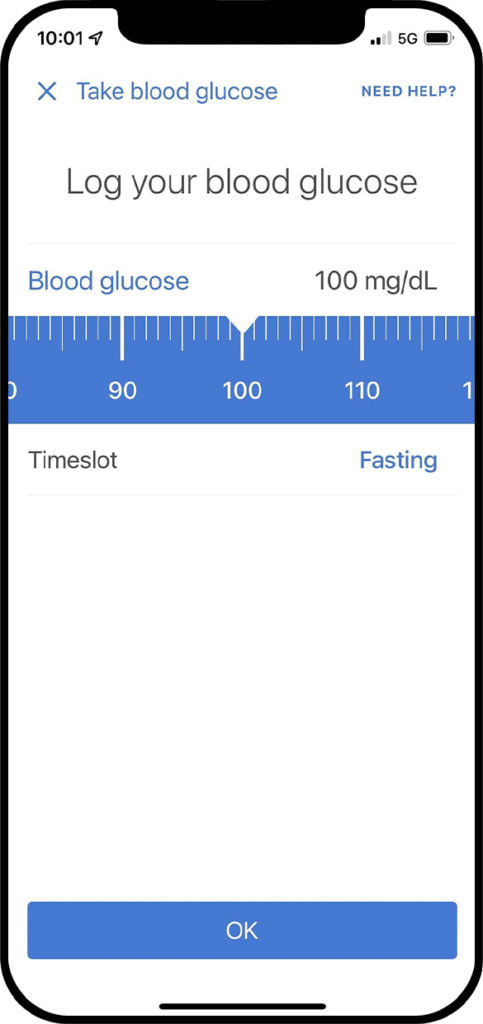Does Noom work for diabetes? Here’s everything you need to know.

How Noom can help | What can you eat on Noom? | Does Noom track blood sugar and carbohydrates? | Do you need to exercise? | Does Noom help with prediabetes? | Noom’s Diabetes Prevention Program
If you have diabetes, you know managing the condition isn’t easy.
You have to keep daily tabs on your blood sugar, take medications, monitor what you eat, stay on top of doctor visits, and watch out for a host of diabetes-related complications.
On top of all that, you’ve probably had a doctor tell you to lose weight as a way to bring down your blood sugar.
That’s because research shows that losing 5 to 7% of your current weight can help prevent or delay type 2 diabetes and even lead to a remission of diabetes.
You want to lose weight. But with so many health factors to juggle, you may feel overwhelmed.
Noom Weight is here to help.
We’ve designed the program with all the resources you need to stay accountable to your weight loss goals—including lessons, coaching, and food tracking tools.
Note: Please consult with your medical provider before making dietary changes.
Ready to make a lasting change?
A healthier you, wherever you are.
How is Noom good for diabetics who want to lose weight?
1. Daily lessons address mental aspects of weight loss
As someone with diabetes, you may struggle with extreme thoughts around food, like “I can never enjoy cheesecake again” or “candy is off-limits forever.”
We call this all-or-nothing thinking. One slip up and you feel defeated—or give up completely.
With Noom Weight, there are no slip-ups. Our philosophy is that all food—including cheesecake—fits in moderation. And, just as important as tracking calorie or sugar intake is the why behind your eating habits—whether it’s related to stress, boredom, or family tradition.
Our Daily Lessons help you understand your eating motivations.

The lessons are brief (never more than 15 minutes), and they’re impactful.
Over time, you’ll learn how to build healthier responses to emotional triggers, eat more mindfully, and train your thoughts to recognize true hunger.
2. Coaches provide 1:1 support
Regardless of how long you’ve lived with diabetes, the condition can feel like an emotional rollercoaster.
Diabetes is even linked to increased rates of depression and anxiety, and the relentlessness of managing the condition itself can lead to emotional burnout—known as diabetes distress.
Whatever you’re feeling, you’re not alone. Your Noom Weight coach is there for you.
Trained in key principles from the science of behavior change, your coach can help you identify your goals and stick to them. Our coaches also adapt to your needs.
Maybe you want your coach to hold you accountable to following your doctor’s recommendation, or you might need support with daily glucose tracking.
And of course, it helps to hear the occasional pep talk when you’re feeling low.
Over the years, our coaches have supported many Noomers who are managing T1, T2, or prediabetes diagnoses. They’ll help you focus your energy where you need it for the best results.
At Noom Weight, we’ve also seen that it’s easier to stick with a plan when you have friends to support you. So, you’ll have the option to join a peer support group of 10 to 15 other Noomers. Connect with like-minded people to share tips and celebrate wins.
3. Food logging keeps you accountable and on track
Tracking your food intake is a key part of diabetes management.
Food logging helps you stay accountable for your eating habits, makes you aware of unhealthy patterns—like consuming too much sugar—and pinpoints foods and situations that cause highs or lows.
Noom Weight makes it easy to track everything you eat

This food logging can be an eye-opening experience. It not only reveals how much you’ve been eating until now, but it also helps you learn what a proper portion size looks like. Plus, research has shown the more you track what you eat, the likelier you are to reach your goal weight.
Food tracking helps Noomers plan what they want to eat and feel good about the choices they’re making. So go ahead and treat yourself to that cheesecake.
By using the handy portion size guide within Noom’s food tracker, you’ll make sure you’re eating a properly portioned serving. And drawing from what you’ve learned in Daily Lessons, you’ll pair the cheesecake with some fiber-rich berries to offset any spike in blood sugar.
What can you eat on Noom?
No foods are off limits when using Noom Weight.
That said, Noom’s color-coded food system will naturally guide you toward more nutritional choices.
Noom Weight uses a 3-color system to categorize foods into green, yellow, and orange.
- Green foods fill you up while keeping your calories low.
- Orange foods do the opposite and tend to be higher in calories.
- Yellow foods are in-between.
Noom encourages you to choose foods that fall into the green category, such as vegetables, fruit, plain yogurt, and high-fiber whole grains—which also happen to be good choices for people with diabetes.

Orange indicates foods that are highest in calories and/or lowest in nutrition, including highly refined grains (like white bread, rice, and pasta), processed foods, sugar-sweetened beverages, fruit juices, etc.
Many orange foods are ones that people with diabetes should typically avoid or have in moderation.
Orange, green, and yellow don’t mean “good” or “bad” though. They’re just there to alert you to foods you may think are healthy but are high in carbohydrates and sugars—like certain breakfast cereals, energy bars, etc.
By using the color system to choose more nutrient-dense versus calorie-dense foods, you’re already chiseling away at the calories you consume each day.
This system helps you be in a calorie deficit and lose weight, which, in turn, helps you with diabetes management.
Does Noom track blood sugar levels and carbohydrates?
The Noom Weight app includes a feature that allows you to manually log your daily glucose levels, as well as weight, blood pressure, and water intake. Tracking these measurements can help keep stay on track and provide insights for your coach.

If your blood glucose levels start to get a bit high, your coach might check your food tracker to see what you ate that day. Your coach might offer alternate suggestions or ideas for incorporating more green foods you like. They may also dig into any triggers—like stress or boredom—that set you off track in the first place.
The Noom Weight app allows you to monitor your carbohydrate intake as well. When you log a banana, for example, simply click on “More” in the food tracker, and you’ll see a breakdown of nutritional facts, including carbohydrates, sugars, and fats.
Ready to make a lasting change?
A healthier you, wherever you are.
Do you need to exercise on Noom?
When it comes to losing weight, we believe it’s most important to focus on nutrition, food choices, and changing your habits around eating. But at the same time, we know that movement is a key way to lower blood sugar.
Here at Noom Weight, we won’t push you to exercise.
But when you feel ready, we’ll help you take those first steps toward fitness. You’ll start with 200 steps at a time (using the Noom Weight app’s pedometer) and then add a little bit more each day.
Many Noomers started just by walking a short distance, such as up and down their driveway. Before they knew it, they were walking two to three miles a day, six days a week.
Just like foods, we don’t believe there are “good” and “bad” workouts. We want to encourage you to find the ones that are most enjoyable for you.
You can use the app’s fitness tracker to find fun exercises—from Pilates to ping pong—and monitor your activity. Just log the activity and the amount of time it took. Noom Weight will calculate the calories burned for you.
Does Noom help with managing prediabetes?
Yes. Losing weight is one of the top CDC recommendations for individuals with prediabetes to lower their risk for developing Type 2 Diabetes.
And Noom helps you do that.
Along with weight loss for prediabetes, our goal is to help you develop sustainable habits you’ll keep for a lifetime—not just the period of time you’re on the program.
What is Noom’s Diabetes Prevention Program?
Noom’s Diabetes Prevention Program is a separate program from Noom Weight. If you meet the criteria, you may be eligible for this specialized prediabetes program.
The National Diabetes Prevention Program (or National DPP) is a network of public and private organizations working to prevent or delay Type 2 Diabetes and other serious health conditions that can result from the disease.
Noom’s DPP is a year-long, personalized course that helps participants reduce their risk of developing Type 2 Diabetes by making lifestyle changes and focusing on healthy habits.
Noom’s Diabetes Prevention Program (DPP) was the first virtual provider to receive official recognition by the Centers for Disease Control and Prevention (CDC) as part of their National Diabetes Prevention Program (National DPP).
Participants have access to a one-on-one DPP coach and a group of peers who support each other in building long-lasting healthy habits throughout the year-long journey.
Learn more about the program or fill out our survey to determine your eligibility.
Get started with Noom for diabetes
Whether you’re managing diabetes or looking to lose a few pounds before that upcoming special event, Noom Weight is here for you. Sign up for a free trial of Noom today.

